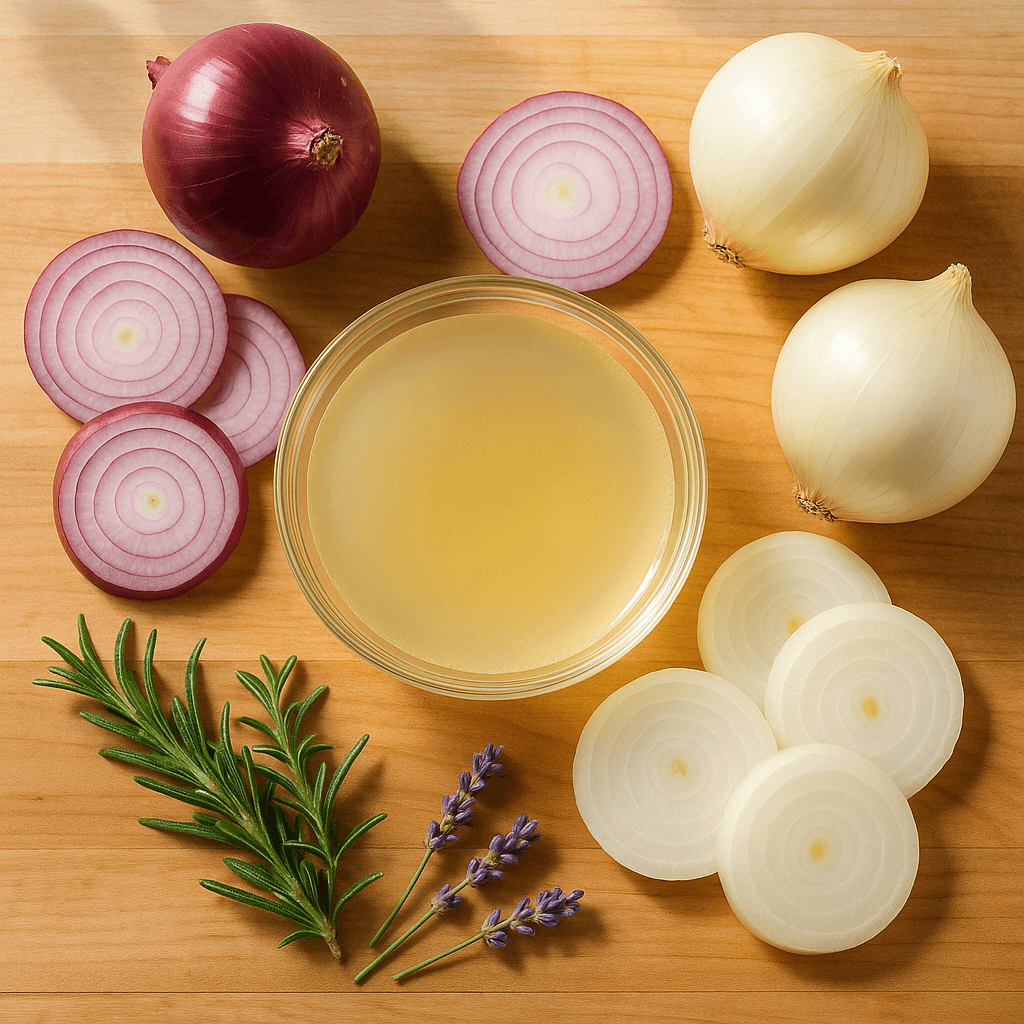
1. Introduction: Rediscovering Onion Juice
In a world flooded with expensive hair treatments and chemical-loaded products, many people are turning back to nature for effective, low-cost remedies. Among these natural treatments, onion juice has emerged as an unlikely hero. It may not sound glamorous, and yes, the smell is strong—but this kitchen staple is making waves in the beauty world for its ability to support stronger, thicker, and healthier hair.
Historically, onion juice has been used in traditional medicine systems like Ayurveda and Unani for treating hair fall and improving scalp health. Fast forward to today, and its comeback is powered by a growing body of anecdotal success stories and scientific studies. Celebrities and dermatologists alike are singing its praises. Take, for example, Cardi B’s viral onion hair routine, which sparked a surge in interest across social platforms. More than just a trend, onion juice is now a natural solution backed by real science.
If you’re tired of hair thinning, shedding, or slow growth and want a chemical-free solution that actually works, this guide is for you. We’ll explore why onion juice is beneficial for hair, what science says, how to make and apply it, and how to avoid common mistakes while using it.
2. The Science Behind Onion Juice for Hair Growth
2.1 Sulfur: The Key Element for Hair Strength
Sulfur is a mineral present in every cell of your body, but it plays a particularly crucial role in hair health. Your hair is made up of a protein called keratin, and sulfur is one of the main building blocks of keratin. Without enough sulfur, your hair becomes weak, brittle, and more likely to fall out.
Onions are rich in organosulfur compounds like thiosulfinates and sulfoxides. When applied to the scalp, these compounds penetrate the follicles and help rebuild the keratin structure. This strengthens the hair shaft and reduces breakage over time.
Moreover, sulfur also plays a role in boosting collagen production, which further supports healthy skin and hair follicle function. This is especially important if you’re suffering from issues like a dry scalp or poor follicular anchorage.
2.2 Antioxidants: Quercetin and Flavonoids
Onion juice is loaded with antioxidants, particularly quercetin, a powerful flavonoid known for its anti-inflammatory and free radical-scavenging abilities. Free radicals can damage scalp tissues and hair follicles, speeding up aging and hair loss. By neutralizing these free radicals, quercetin helps protect your hair cells and prolongs the anagen phase (the active growth phase of the hair cycle).
Other flavonoids in onion juice also reduce inflammation, which is critical for people dealing with conditions like seborrheic dermatitis or dandruff, where chronic inflammation impairs hair growth.
2.3 Improved Scalp Circulation
Blood circulation is vital for hair growth because it delivers oxygen and nutrients to the hair roots. The massaging action combined with the stimulating compounds in onion juice helps enhance microcirculation, thereby increasing follicle nourishment. Similar to how minoxidil works by enhancing blood flow, onion juice may promote a better follicular environment through similar pathways—naturally.
2.4 Natural Antibacterial and Antifungal Benefits
Scalp infections caused by Malassezia fungi or bacteria like Staphylococcus aureus are common causes of hair thinning. Onion juice possesses antibacterial and antifungal properties that help cleanse the scalp of these pathogens. By maintaining a clean and balanced scalp environment, the chances of hair fall due to microbial infections are greatly reduced.
Onion juice also contains allicin, which has proven antibacterial effects. This makes it effective not just for growth, but also for preventing scalp acne, dandruff, and infections that block hair follicles.
3. What Research and Studies Show
3.1 Groundbreaking 2002 Study
One of the most cited studies on onion juice’s effect on hair was conducted in 2002 and published in the Journal of Dermatology. In this randomized trial, 38 patients with alopecia areata were split into two groups. One group applied onion juice to their scalp twice a day for two months, while the other group used tap water.
Results were remarkable:
- 86.9% of those in the onion group experienced significant hair regrowth within six weeks
- In contrast, only 13% of the tap water group showed any improvement
- The study concluded that onion juice is a safe and effective therapy for patchy hair loss
3.2 Additional Anecdotal Evidence
Beyond clinical trials, countless users on platforms like Reddit, YouTube, and hair care forums have documented their experiences using onion juice. While results vary based on individual genetics and consistency, most report improvements in hair density, texture, and overall scalp health.
3.3 Limitations and Future Research
Despite promising data, it’s important to recognize the limitations. Most existing studies are small and lack double-blind controls. There’s also limited research on onion juice’s effectiveness in treating androgenic alopecia (male/female pattern baldness), though anecdotal reports are promising.
Future large-scale, placebo-controlled studies are needed to establish its effectiveness across different types of hair loss.
4. How to Make Onion Juice at Home
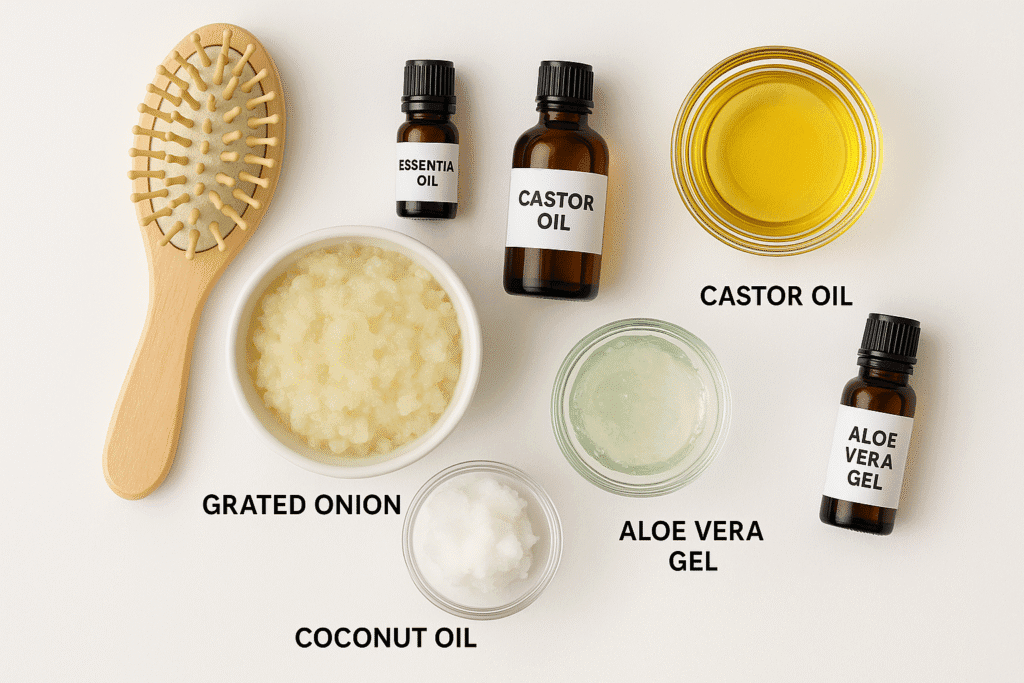
4.1 Ingredients Needed
- 1 large red or white onion
- A blender or grater
- Cheesecloth or fine strainer
- Small bowl
- Optional: essential oils (lavender, peppermint, or rosemary)
4.2 Instructions
- Peel and chop the onion into small pieces.
- Blend or grate until it becomes a fine paste.
- Place the paste in a cheesecloth and squeeze out the juice into a bowl.
- Add 3–4 drops of essential oil to mask the strong smell and add extra benefits.
You can also mix onion juice with:
- Coconut oil for extra hydration
- Castor oil for thickness
- Aloe vera gel to soothe sensitive scalps
Store the juice in an airtight container in the refrigerator. It can last up to 3 days.
5. How to Apply Onion Juice to Your Hair
5.1 Pre-Application: Patch Test is a Must
Always do a patch test before your first use. Apply a small amount of onion juice to the inside of your wrist or behind your ear. Wait for 24 hours. If there’s no redness or irritation, you’re good to go.
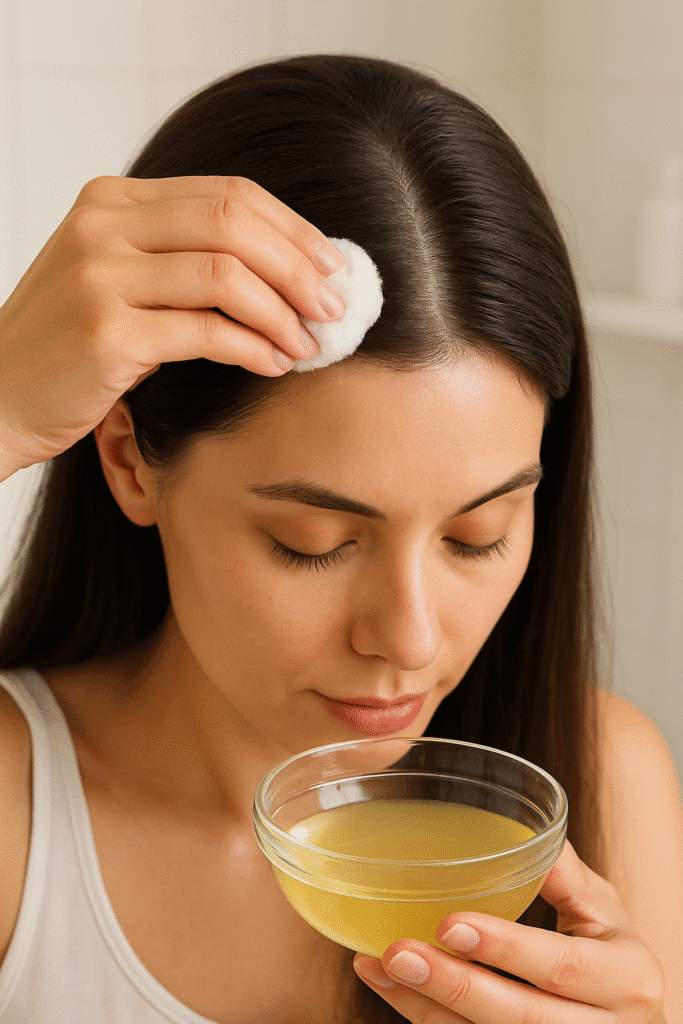
5.2 Application Process
- Start with dry or slightly damp hair.
- Section your hair into parts using a comb.
- Use a cotton ball, brush, or spray bottle to apply the juice directly to your scalp.
- Focus on bald spots or thinning areas.
- Gently massage for 2–3 minutes to stimulate blood flow.
- Leave it on for 30 to 45 minutes.
- Wash off using a mild, sulfate-free shampoo.
5.3 Frequency of Use
For best results, apply onion juice:
- 2–3 times a week
- Continue for at least 8–10 weeks
- Track progress by taking weekly photos of your hairline and crown
If you notice any increased dryness, reduce usage to once a week and combine with hydrating oils.
6. Possible Side Effects and Precautions
While onion juice is a natural remedy, it doesn’t mean it’s universally safe. Everyone’s skin and scalp react differently, and it’s essential to proceed cautiously.
6.1 Common Reactions and How to Avoid Them
- Itching or Burning Sensation: Some users report a tingling or burning feeling after applying raw onion juice. This is often due to the high sulfur content. To prevent discomfort, dilute the juice with coconut oil or aloe vera gel.
- Strong Odor: The smell is potent and can linger even after washing. You can neutralize it by rinsing your hair with apple cider vinegar or using essential oils like peppermint or lemon.
- Dryness: Overuse can lead to dryness or flaky scalp. Limit application to 2–3 times weekly and always follow with a nourishing conditioner.
6.2 Allergy Considerations
Even though food allergies to onions are rare, contact dermatitis can occur when onion juice is applied topically. Symptoms may include redness, rashes, and swelling. If this happens, stop use immediately and consult a dermatologist.
If you have a history of allergies or sensitive skin, always:
- Conduct a 24-hour patch test
- Dilute onion juice before first application
- Avoid application on broken, sunburned, or irritated skin
6.3 Who Should Avoid It
- People with eczema or psoriasis: The acidic compounds in onion juice may exacerbate skin conditions.
- Pregnant or breastfeeding women: While no evidence shows it’s harmful, always check with your doctor before trying new topical treatments.
- Children: Young scalps are more sensitive; it’s best to avoid potent treatments like this.
As a general rule, if your scalp condition worsens or you notice excessive shedding after starting onion juice, stop and consult a medical professional.
7. Maximizing Results: Complementary Natural Therapies
To get the best results from onion juice, pair it with other natural treatments and healthy lifestyle habits.
7.1 Nourishing Oils
Incorporating natural oils can amplify the effects of onion juice and help counteract dryness.
“Want to pair onion juice with nourishing oils? Explore our list of the Top 5 Homemade Oils to Stop Hair Fall Naturally.”
- Coconut Oil: Packed with fatty acids that penetrate the hair shaft, coconut oil reduces protein loss and adds moisture. It’s a perfect base to dilute onion juice.
- Castor Oil: Known for its ability to thicken hair and promote growth, castor oil contains ricinoleic acid, which supports circulation to the follicles.
- Argan Oil: Rich in vitamin E and antioxidants, it adds shine, repairs damage, and hydrates the scalp.
Pro Tip: Mix 2 tablespoons of onion juice with 1 tablespoon of castor oil and warm slightly. Apply as a mask and leave it for 45 minutes before shampooing.
“Looking for more ways to nourish your skin and hair naturally? Check out these 7 Simple DIY Beauty Tips that you can try at home.”
7.2 Nutrition & Supplements
No topical treatment will work optimally if your internal health is lacking. Hair is a non-essential tissue, so when nutrients are scarce, your body deprioritizes hair growth.
Include these in your diet:
- Biotin (Vitamin B7): Essential for keratin production. Found in eggs, nuts, and sweet potatoes.
- Iron: Prevents anemia-related hair loss. Rich sources include red meat, spinach, and lentils.
- Zinc and Selenium: Support follicular health and immune function.
- Protein: Your hair is made of it! Aim for 0.8–1g per kg of body weight daily.
- Vitamin D: A deficiency can lead to hair shedding. Get sun exposure or consider supplements if you’re indoors often.
Learn more from Harvard Health on hair nutrients
7.3 Stress Management and Sleep Hygiene
Chronic stress spikes cortisol, a hormone that can push hair into the telogen (resting) phase, resulting in excessive shedding. To manage this:
- Practice mindfulness or meditation for 10 minutes daily
- Engage in regular physical activity
- Get 7–9 hours of sleep to support hormonal balance
Also, avoid tight hairstyles, harsh chemical treatments, and excessive heat tools that damage hair over time.
8. Real-World Experiences: Does It Work for Everyone?
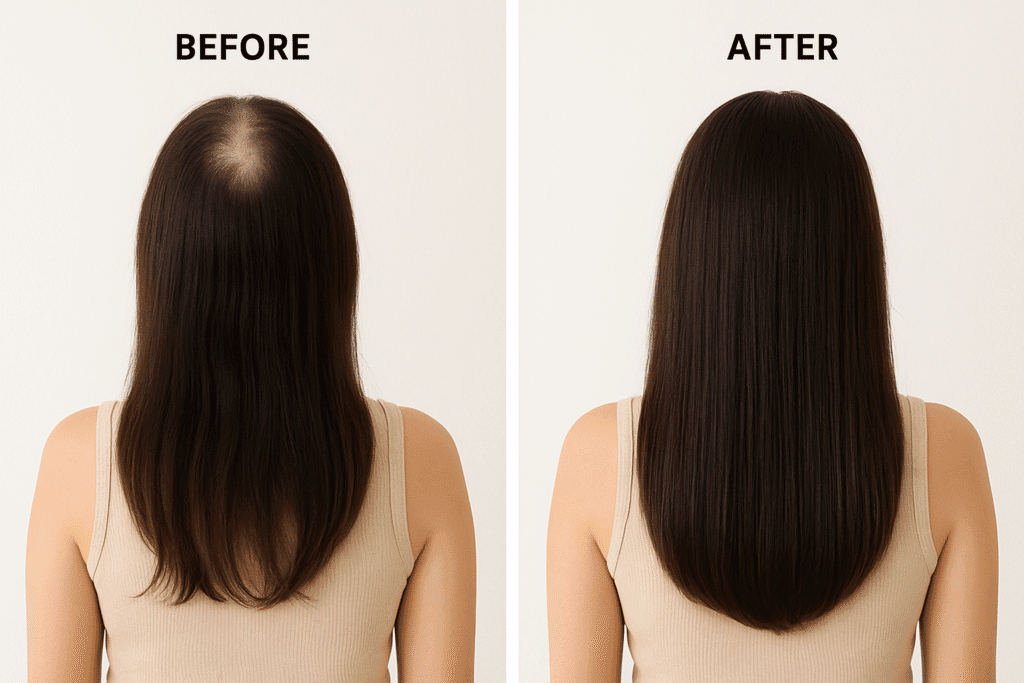
User Testimonials
On platforms like Reddit and YouTube, people are documenting impressive before-and-after transformations. Some report thicker edges, reduced dandruff, and shinier locks after just four weeks of consistent use.
“I’ve used it three times a week, and my bald patches started filling in. It smells, but it works.” – Reddit user r/LongHairCommunity
Others found success by combining it with castor oil or aloe vera for better scalp tolerance.
Mixed Outcomes
However, not all users see dramatic changes. In cases of genetic baldness (androgenic alopecia), onion juice may slow down shedding or boost thickness temporarily but won’t regrow hair where follicles are dead.
Still, it’s often a great supplement to other treatments like minoxidil or PRP therapy—especially if you’re looking for a natural boost without side effects.
Frequently Asked Questions (FAQs)
Q1: Can I store onion juice for later use?
Yes. Keep it in an airtight container in the refrigerator for up to u003cstrongu003e3 daysu003c/strongu003e. Shake well before use.
Q2: Does onion juice smell bad after washing?
It can. To neutralize the odor, rinse with diluted apple cider vinegar or lemon juice. Adding essential oils during preparation helps, too.
Q3: Can I use onion juice daily?
Not recommended. Overuse can irritate your scalp and cause dryness. u003cstrongu003e2–3 times a weeku003c/strongu003e is sufficient.
Q4: Can onion juice regrow hair on bald patches?
It may help if follicles are still active, particularly in u003cstrongu003ealopecia areatau003c/strongu003e or recent hair loss. However, it’s not a cure for pattern baldness.
Q5: Can I mix it with conditioner or shampoo?
It’s best used fresh and directly on the scalp, but you can mix leftover juice into DIY masks or pre-shampoo oils.
10. Final Thoughts: Nature’s Answer to Healthier Hair
If you’re dealing with hair thinning, shedding, or just want to grow thicker, shinier hair, onion juice is a compelling remedy worth trying. Rich in sulfur, antioxidants, and natural antimicrobials, it supports the scalp and strengthens strands from the root.
“Discover more natural solutions on our dedicated Hair Care Remedies page.“
No, it won’t fix everything overnight, and it doesn’t work the same for everyone. But when combined with a healthy diet, good hair hygiene, and patience, the results can be impressive—and all from an ingredient sitting in your kitchen.
Start today. Patch test. Mix your own batch. Track progress weekly. And give it at least 8–12 weeks of consistent use before deciding if it’s for you.

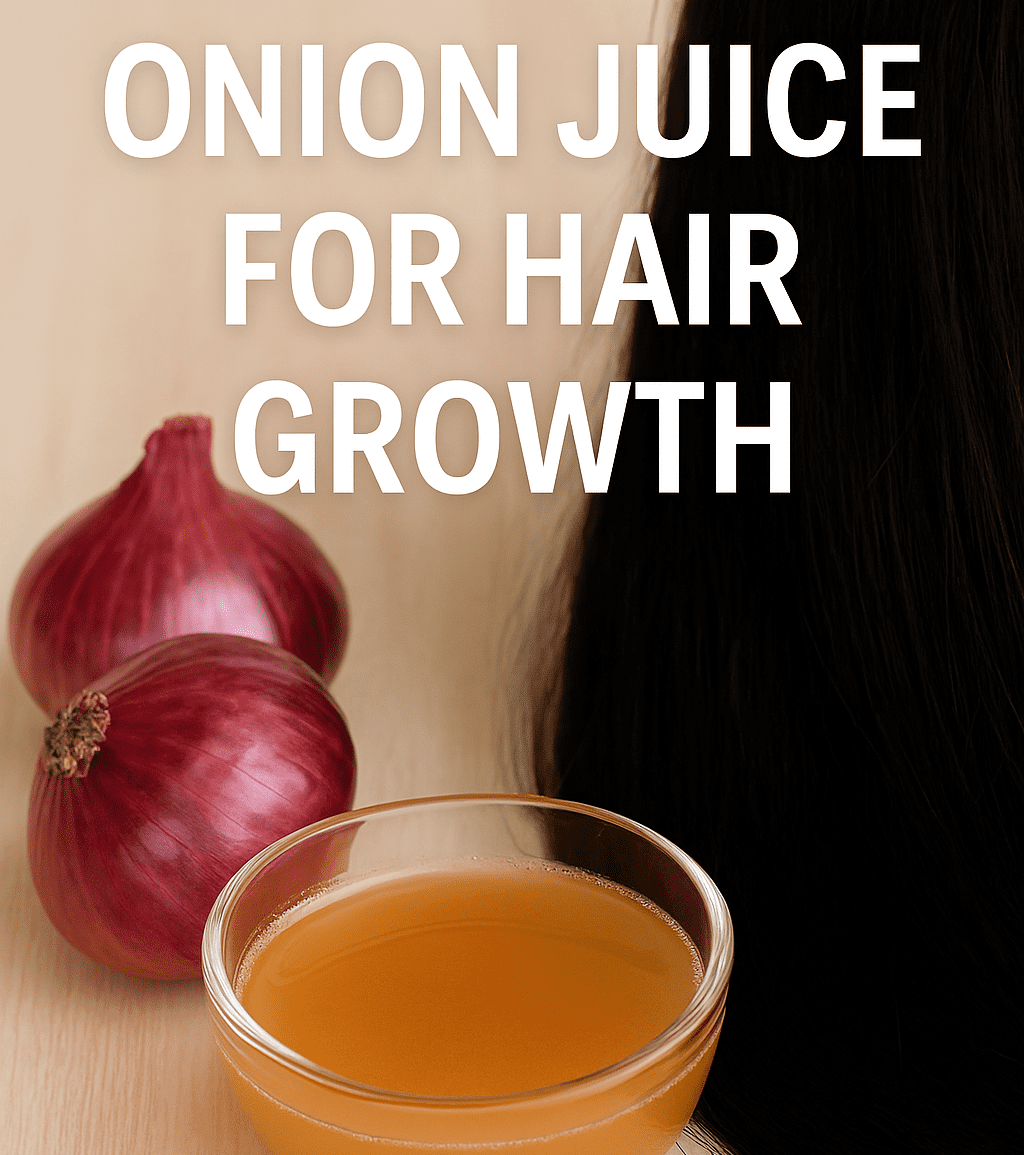
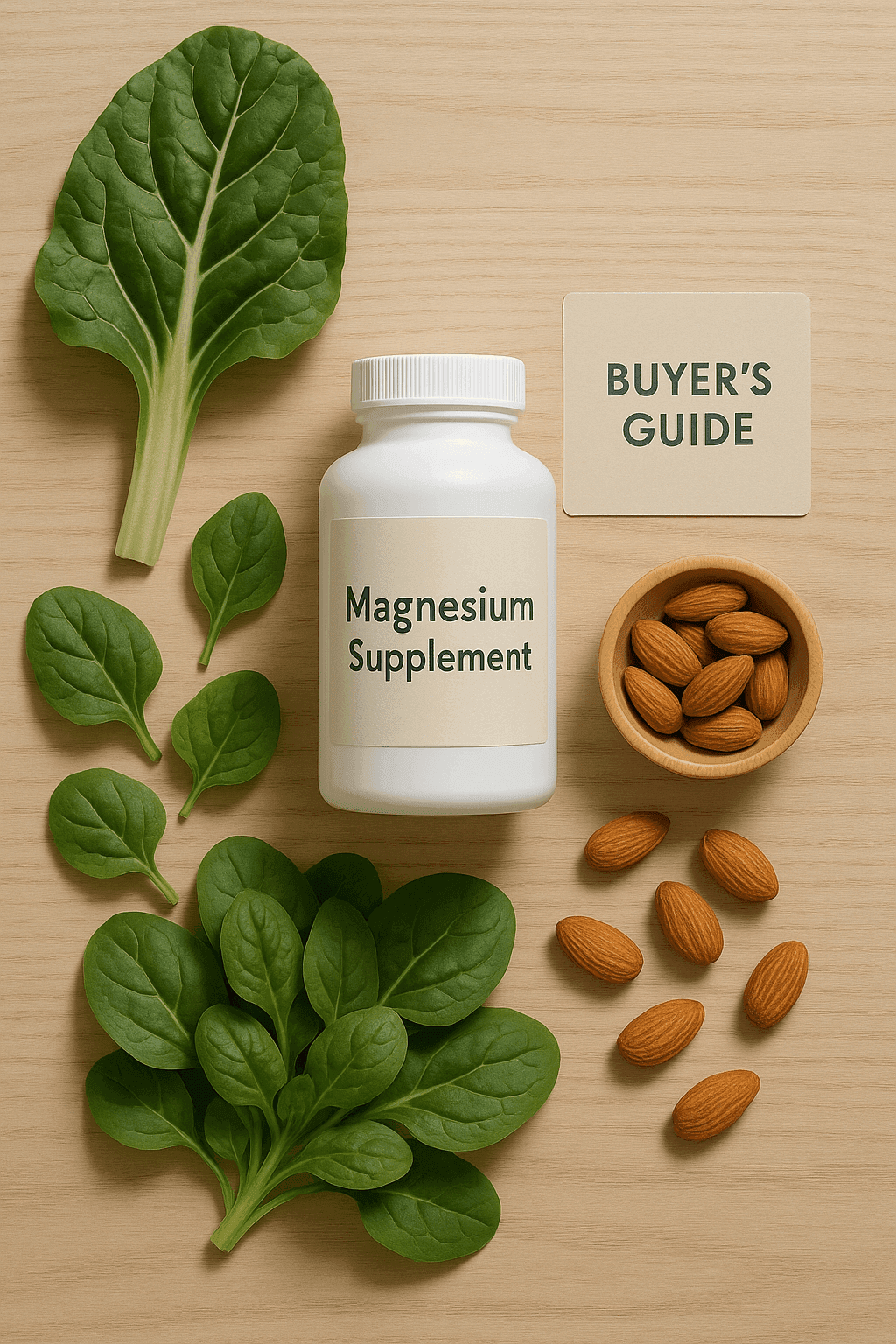
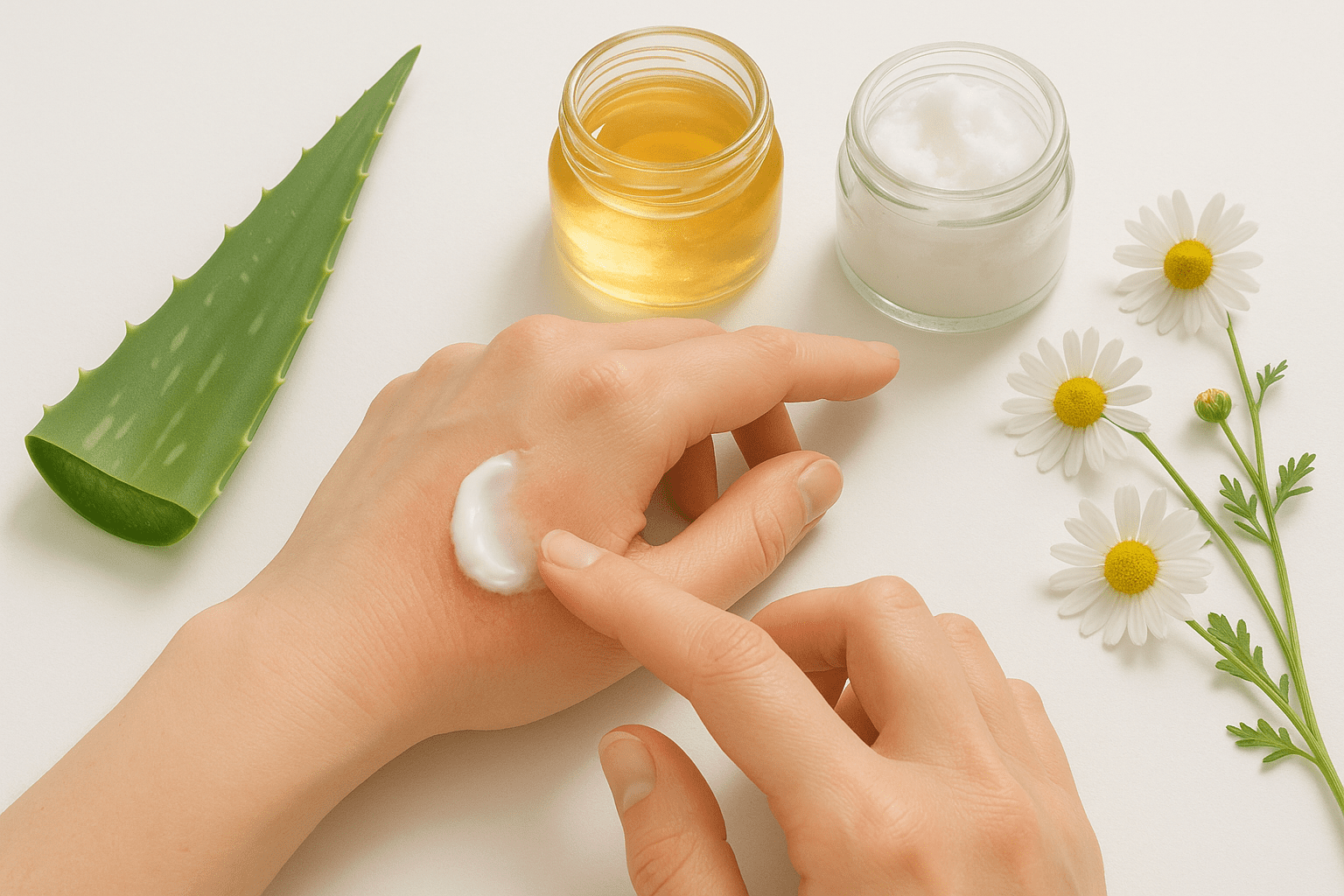

1 Comment
Your comment is awaiting moderation.
why do people take steroids
http://stroyrem-master.ru/user/turretveil2/ stroyrem-master.ru
http://premiumdesignsinc.com/forums/user/officepoppy1/ premiumdesignsinc.com
https://harris-graves-2.hubstack.net/buy-dianabol-methandienone-online-lab-tested-and-99-purity harris-graves-2.hubstack.net
https://wikimapia.org/external_link?url=https://www.neukoelln-online.de/include/pages/testosteron_steigern_tabletten_2.html https://wikimapia.org/
https://wifidb.science/wiki/Testosterone_Replacement_Therapy_TRT_Telehealth https://wifidb.science/
https://yogaasanas.science/wiki/Dianabol_Inj_50 yogaasanas.science
https://humanlove.stream/wiki/8_Methoden_Testosteron_natrlich_zu_steigern https://humanlove.stream
https://funsilo.date/wiki/Buy_Trenbolone_Online_in_Europe funsilo.date
http://ezproxy.cityu.edu.hk/login?url=https://www.lafilatelia.it/img/pgs/acquistare_clenbuterolo.html http://ezproxy.cityu.edu.hk
https://www.instapaper.com/p/17438174 http://www.instapaper.com
https://scientific-programs.science/wiki/Testosterone_What_It_Is_Function_Levels https://scientific-programs.science/wiki/Testosterone_What_It_Is_Function_Levels
https://urlscan.io/result/019c2c37-da1a-76be-ab35-c4ced52b96cb/ urlscan.io
https://rentry.co/q72ycbbq rentry.co
https://elearnportal.science/wiki/Clenbuterol_Wikipedia elearnportal.science
https://jacobsen-sandberg-2.thoughtlanes.net/how-to-choose-a-legit-steroid https://jacobsen-sandberg-2.thoughtlanes.net/how-to-choose-a-legit-steroid
https://onlinevetjobs.com/author/quincegallon6/ onlinevetjobs.com
https://a-taxi.com.ua/user/cuttown5/ https://a-taxi.com.ua/user/cuttown5
https://cochrane-mcmahon-4.blogbright.net/buy-high-quality-research-peptides-fast-next-day-uk-delivery cochrane-mcmahon-4.blogbright.net
References:
cochrane-cormier-3.technetbloggers.de
Your comment is awaiting moderation.
hth steroids
https://bookmarkstore.download/story.php?title=your-complete-clenbuterol-buying-guide-safely-purchase-clenbuterol bookmarkstore.download
https://mozillabd.science/wiki/Prescription_Medications_to_Treat_Overweight_Obesity mozillabd.science
https://marvelvsdc.faith/wiki/Highest_Quality_THC_Magic_Mushroom_Products marvelvsdc.faith
https://onlinevetjobs.com/author/toothcap6/ onlinevetjobs.com
http://jobs.emiogp.com/author/beetledance8/ jobs.emiogp.com
http://mozillabd.science/index.php?title=porterfieldadamsen0215 mozillabd.science
http://09vodostok.ru/user/toothbakery5/ http://09vodostok.ru/user/toothbakery5/
https://firsturl.de/0IkV171 firsturl.de
https://opensourcebridge.science/wiki/Ordering_medicines_online opensourcebridge.science
https://sanford-vilstrup.technetbloggers.de/clenbuterol-nebenwirkung-and-wechselwirkung sanford-vilstrup.technetbloggers.de
https://www.instapaper.com/p/17438093 http://www.instapaper.com
https://wikimapia.org/external_link?url=https://byizea.fr/js/pgs/?acheter_de_la_testosterone_2.html https://wikimapia.org/external_link?url=https://byizea.fr/js/pgs/?acheter_de_la_testosterone_2.html
https://best-rutledge-4.hubstack.net/winstrol-stanozolol-online-kaufen https://best-rutledge-4.hubstack.net/winstrol-stanozolol-online-kaufen
https://clashofcryptos.trade/wiki/Compounded_Stanozolol_Capsules https://clashofcryptos.trade
https://bookmarking.win/story.php?title=how-do-appetite-suppressants-work-science-explained-simply bookmarking.win
https://king-bookmark.stream/story.php?title=dragon-pharma-peptides-for-sale-buy-peptides-online king-bookmark.stream
http://dubizzle.ca/index.php?page=user&action=pub_profile&id=137715 http://dubizzle.ca
http://pattern-wiki.win/index.php?title=ryanmahmoud8483 pattern-wiki.win
References:
botdb.win
Your comment is awaiting moderation.
I don’t think the title of your article matches the content lol. Just kidding, mainly because I had some doubts after reading the article. https://www.binance.com/zh-CN/register?ref=WFZUU6SI
Your comment is awaiting moderation.
Thanks for sharing. I read many of your blog posts, cool, your blog is very good.
Your comment is awaiting moderation.
best casino online
https://www.instapaper.com/p/17426407 https://www.instapaper.com
https://nerdgaming.science/wiki/Top_Casinos_Accepting_PayID_Comprehensive_Review_2026 nerdgaming.science
https://elclasificadomx.com/author/layerzebra21/ elclasificadomx.com
http://09vodostok.ru/user/liertent47/ http://09vodostok.ru/user/liertent47/
https://may22.ru/user/cloudwave89/ may22.ru
https://firsturl.de/b9kDg1e firsturl.de
https://onlinevetjobs.com/author/risecolor97/ onlinevetjobs.com
https://lovewiki.faith/wiki/Best_PayID_Casinos_Pokies_in_Australia_2025 lovewiki.faith
https://numberfields.asu.edu/NumberFields/show_user.php?userid=6497403 https://numberfields.asu.edu
https://clashofcryptos.trade/wiki/Fast_Secure_Reliable_Pokies_Banking clashofcryptos.trade
https://marvelvsdc.faith/wiki/Play_Pokies_real_money_with_Instant_withdrawal marvelvsdc.faith
https://p.mobile9.com/fogframe93/ p.mobile9.com
https://marvelvsdc.faith/wiki/PayID_Pokies_Australia_No_Deposit_Bonus_Free_Pokies_Offers marvelvsdc.faith
https://menwiki.men/wiki/The_Best_PayID_Casinos_in_Australia_2025 menwiki.men
https://elclasificadomx.com/author/layerzebra21/ elclasificadomx.com
https://lovewiki.faith/wiki/ALeague_Tips https://lovewiki.faith/wiki/ALeague_Tips
https://lospromotores.net/author/ocelotcoach58/ lospromotores.net
https://rentry.co/tqfqv69x https://rentry.co/
References:
images.google.com.sv
Your comment is awaiting moderation.
imperial casino
https://may22.ru/user/lierred06/ may22.ru
https://lospromotores.net/author/snowdate28/ lospromotores.net
https://telegra.ph/PayID-Online-Casinos-Australia-2026-Top-15-02-01 https://telegra.ph/
https://arsenault-deal.hubstack.net/payid-casino-no-delays-no-fees-just-fast-real-money-play https://arsenault-deal.hubstack.net/payid-casino-no-delays-no-fees-just-fast-real-money-play
https://sonnik.nalench.com/user/recessformat16/ sonnik.nalench.com
https://www.fionapremium.com/author/pianodate70/ https://www.fionapremium.com/author/pianodate70
https://wifidb.science/wiki/PayID_Casinos_in_Australia_Play_PayID_Pokies_Online_2026 https://wifidb.science/
https://gaiaathome.eu/gaiaathome/show_user.php?userid=1834870 gaiaathome.eu
https://lospromotores.net/author/tripdesk91/ lospromotores.net
https://may22.ru/user/ocelotcoach53/ may22.ru
https://hikvisiondb.webcam/wiki/Royal_Reels_20_Fast_Crypto_Withdrawals_PayID_Pokies hikvisiondb.webcam
https://cloudknight50.bravejournal.net/best-payid-casinos cloudknight50.bravejournal.net
https://from-chambers-2.hubstack.net/osko-vs-payid-best-aussie-casino-payment-method https://from-chambers-2.hubstack.net/osko-vs-payid-best-aussie-casino-payment-method
https://www.udrpsearch.com/user/cloudbrandy83 http://www.udrpsearch.com
http://king-wifi.win//index.php?title=hoffhuynh7266 http://king-wifi.win/
https://swaay.com/u/tinianvcbyl55/about/ swaay.com
https://dreevoo.com/profile.php?pid=1035675 dreevoo.com
https://ondashboard.win/story.php?title=play-pokies-real-money-with-instant-withdrawal https://ondashboard.win/story.php?title=play-pokies-real-money-with-instant-withdrawal
Your comment is awaiting moderation.
william hill casino
https://telegra.ph/Best-PayID-Casinos-in-Australia-Top-10-Aussie-Casino-Sites-with-PayID-Withdrawals-2024-02-01 telegra.ph
https://pediascape.science/wiki/Why_PayID_Is_the_Safest_Casino_Banking_Option_for_Aussie_Players pediascape.science
https://securityholes.science/wiki/Top_PayID_Pokies_Sites_for_Australian_2025 https://securityholes.science/
https://urlscan.io/result/019c1a87-1b4b-706a-9dd5-6d6fbe23f5c2/ https://urlscan.io/
https://intensedebate.com/people/bluesarah72 intensedebate.com
https://burmamargin08.bravejournal.net/from-france-to-africa-maxime-lebail-on-champsbases-expansion burmamargin08.bravejournal.net
https://empirekino.ru/user/dreamjelly68/ empirekino.ru
https://swaay.com/u/duerairgolf15/about/ https://swaay.com/
https://a-taxi.com.ua/user/trippisces18/ a-taxi.com.ua
https://bagge-bisgaard-5.mdwrite.net/top-high-roller-online-casinos-exclusive-selections-2025 bagge-bisgaard-5.mdwrite.net
https://clashofcryptos.trade/wiki/Top_PayID_Casino_Sites_in_Australia_2026_PayID_Online_Casino_Deposits https://clashofcryptos.trade/
http://mozillabd.science/index.php?title=brantleyfallon0178 mozillabd.science
https://gratisafhalen.be/author/lierknife71/ gratisafhalen.be
https://hikvisiondb.webcam/wiki/Implementing_AI_to_Personalise_the_Gaming_Experience_for_Australian_Pokies_Payments_Processing_Times https://hikvisiondb.webcam/
https://mapleprimes.com/users/canformat68 https://mapleprimes.com/users/canformat68
https://www.google.com.pe/url?q=https://blackcoin.co/best-payid-casinos-in-australia-15-sites-that-accept-payid/ google.com.pe
https://gaiaathome.eu/gaiaathome/show_user.php?userid=1834846 gaiaathome.eu
http://humanlove.stream//index.php?title=alsfrancis0348 http://humanlove.stream/
Your comment is awaiting moderation.
anabolic steroid for sale
https://www.udrpsearch.com/user/weekcamp6 http://www.udrpsearch.com
https://menwiki.men/wiki/Winstrol_50_Magnus_Pharmaceuticals_kaufen_in_sterreich_Wirkung_Preis_ab_64_00 https://menwiki.men/wiki/Winstrol_50_Magnus_Pharmaceuticals_kaufen_in_sterreich_Wirkung_Preis_ab_64_00
http://king-wifi.win//index.php?title=dahlgaardharper8129 king-wifi.win
http://okprint.kz/user/ricecirrus7/ okprint.kz
https://justpin.date/story.php?title=best-hgh-injections-to-buy-top-7-brands-on-the-market-hfs-clinic-hgh-trt justpin.date
https://grady-lunding-2.federatedjournals.com/purchase-winstrol-online-a-comprehensive-guide-for-athletes https://grady-lunding-2.federatedjournals.com
https://clashofcryptos.trade/wiki/Stanozolol_Depot_Winstrol_injizierbar_50_mg_ml clashofcryptos.trade
https://lovebookmark.win/story.php?title=dianabol-20mg-50-tablets lovebookmark.win
http://king-wifi.win//index.php?title=tylersmed6062 king-wifi.win
https://trade-britanica.trade/wiki/Buying_Winstrol_Essential_Tips_for_Safe_and_Effective_Purchases https://trade-britanica.trade
https://imoodle.win/wiki/Buy_Dianabol_Raw_Powder_Pure_Methandrostenolone_Bulk_Supply https://imoodle.win/
https://p.mobile9.com/cutcamp4/ https://p.mobile9.com/cutcamp4
https://dokuwiki.stream/wiki/Average_HGH_Therapy_Cost_In_The_United_States_Prices_and_Manufacturers_Review dokuwiki.stream
https://clashofcryptos.trade/wiki/Dianabol_Buying_Guide_Tips_Dosage_Where_to_Buy clashofcryptos.trade
https://intensedebate.com/people/francetown0 intensedebate.com
https://mckenna-mattingly-2.mdwrite.net/trenbolone-official-guide-dosage-half-life-side-effects-esters https://mckenna-mattingly-2.mdwrite.net
https://posteezy.com/testosterone-booster-supplements-what-works-and-what-doesnt posteezy.com
http://ezproxy.cityu.edu.hk/login?url=http://thelawninstitute.org/wp-content/pgs/acquistare_hgh.html ezproxy.cityu.edu.hk
References:
bom.so
Your comment is awaiting moderation.
liver pills bodybuilding
https://sonnik.nalench.com/user/makeupcold7/ sonnik.nalench.com
https://pattern-wiki.win/wiki/Testosterone_Gel_Uses_Side_Effects https://pattern-wiki.win/wiki/Testosterone_Gel_Uses_Side_Effects
https://pediascape.science/wiki/Human_Growth_Hormone_HGH_Benefits_Risks_and_Uses https://pediascape.science/wiki/Human_Growth_Hormone_HGH_Benefits_Risks_and_Uses
http://okprint.kz/user/pvcdonna5/ http://okprint.kz/user/pvcdonna5/
https://egeberg-vilstrup.mdwrite.net/testosteron-naturlich-steigern-naturliches-testosteron-prof-dr-sommer https://egeberg-vilstrup.mdwrite.net/testosteron-naturlich-steigern-naturliches-testosteron-prof-dr-sommer
https://prpack.ru/user/catsupletter0/ prpack.ru
http://historydb.date/index.php?title=shoemakerwitt3377 historydb.date
https://imoodle.win/wiki/Winstrol_kaufen_von_255_online imoodle.win
https://www.udrpsearch.com/user/cutsheep3 http://www.udrpsearch.com
https://skitterphoto.com/photographers/2217600/madsen-heller skitterphoto.com
https://a-taxi.com.ua/user/peonysing2/ a-taxi.com.ua
https://bom.so/gpbzeN bom.so
https://www.youtube.com/redirect?q=https://okplant.nl/wp-content/pgs/clenbuterol_kopen_2.html https://www.youtube.com
https://securityholes.science/wiki/Buy_Legal_Steroids_Online_Anabolic_Steroids_for_Bodybuilding securityholes.science
https://onlinevetjobs.com/author/francemist5/ onlinevetjobs.com
https://telegra.ph/Dianabol-Erfahrungen-Wirkung-Dosierung-und-Kaufberatung-2025-02-05 telegra.ph
https://funsilo.date/wiki/HGH_Prescription_from_a_Doctor_How_to_Get_HGH_Prescribed_Online funsilo.date
https://fakenews.win/wiki/Test_and_Tren_Cycle_Complete_Guide_Benefits_Dosage_and_Risks fakenews.win
References:
https://pediascape.science/wiki/Topical_Steroid_Potency_Chart
Your comment is awaiting moderation.
dianabol anabolic steroids
https://dokuwiki.stream/wiki/Buy_Steroids_Online_in_Europe https://dokuwiki.stream/wiki/Buy_Steroids_Online_in_Europe
https://dueholm-svensson-2.thoughtlanes.net/testosterone-replacement-therapy-injections-patches-and-gels dueholm-svensson-2.thoughtlanes.net
http://jobboard.piasd.org/author/parentmeat96/ http://jobboard.piasd.org/author/parentmeat96/
https://mccain-crouch.mdwrite.net/testosterone-blood-test-testosterone-level-test mccain-crouch.mdwrite.net
https://elearnportal.science/wiki/Trenbolone_Buy_Online_Original_Steroids_for_Bodybuilders elearnportal.science
https://rentry.co/6ftb262x https://rentry.co/6ftb262x
https://coolpot.stream/story.php?title=the-largest-online-healthcare-clinic-in-north-america-affordable-pricing-enjoy-increased-energy-focus https://coolpot.stream/story.php?title=the-largest-online-healthcare-clinic-in-north-america-affordable-pricing-enjoy-increased-energy-focus
https://nerdgaming.science/wiki/Price_from_27_84_Dianabol_buy_online_legal_in_the_shop https://nerdgaming.science/
https://wifidb.science/wiki/Buying_medicines_online_EUterveydenhoito_fi wifidb.science
http://humanlove.stream//index.php?title=ibsenhardy3209 http://humanlove.stream//index.php?title=ibsenhardy3209
https://nerdgaming.science/wiki/Dianabol_50mg nerdgaming.science
https://onlinevetjobs.com/author/cubsandra50/ onlinevetjobs.com
https://imoodle.win/wiki/Steroid_Wikipedia imoodle.win
https://gilbert-crews.thoughtlanes.net/omnitrope-injection gilbert-crews.thoughtlanes.net
http://humanlove.stream//index.php?title=hviidvilstrup3613 humanlove.stream
https://instapages.stream/story.php?title=buy-clenbuterol-online-clen-max-for-sale-in-usa https://instapages.stream/story.php?title=buy-clenbuterol-online-clen-max-for-sale-in-usa
https://www.udrpsearch.com/user/jamsailor11 udrpsearch.com
https://graph.org/Hi-Tech-Winstrol-Lean-Muscle-Strength–Cutting-Formula-02-05 https://graph.org/Hi-Tech-Winstrol-Lean-Muscle-Strength–Cutting-Formula-02-05
References:
https://wifidb.science/
Your comment is awaiting moderation.
all american steroids review|acybgnsynx72k2lagtrdohjfldslpgzigq:***
https://cameradb.review/wiki/The_Best_Natural_Prescription_Appetite_Suppressants https://cameradb.review/wiki/The_Best_Natural_Prescription_Appetite_Suppressants
https://mackenzie-espersen.blogbright.net/buycoalonline-buy-coal mackenzie-espersen.blogbright.net
https://swaay.com/u/blauntzcjcv35/about/ swaay.com
https://trade-britanica.trade/wiki/Buy_Legal_Steroids_Online_Anabolic_Steroids_for_Bodybuilding https://trade-britanica.trade/wiki/Buy_Legal_Steroids_Online_Anabolic_Steroids_for_Bodybuilding
https://wikimapia.org/external_link?url=https://jarvekyla.edu.ee/pages/achat_hormone_de_croissance_2.html wikimapia.org
https://buchanan-oneil-2.thoughtlanes.net/clenomed-40-clenbuterol-hcl-40-mcg-kaufen-tabletten-in-deutschland https://buchanan-oneil-2.thoughtlanes.net/
http://ezproxy.cityu.edu.hk/login?url=https://clinicadentalnoviembre.es/wp-pages/pages/como_aumentar_la_testosterona.html ezproxy.cityu.edu.hk
https://rentry.co/t6667fch https://rentry.co/t6667fch
https://linkagogo.trade/story.php?title=buy-hgh-injections-online-injectable-hgh-norditropin-pens-for-sale-usa linkagogo.trade
https://bookmarks4.men/story.php?title=what-are-testosterone-boosters-and-do-they-really-work-6 bookmarks4.men
https://dreevoo.com/profile.php?pid=1054067 dreevoo.com
https://justbookmark.win/story.php?title=anavar-kaufen-sichere-oxandrolon-tabletten-online-bestellen justbookmark.win
https://imoodle.win/wiki/Steroids_in_belgium_anabolika_in_polen_kaufen_reines_anabol https://imoodle.win/wiki/Steroids_in_belgium_anabolika_in_polen_kaufen_reines_anabol
http://jobboard.piasd.org/author/liftrefund61/ jobboard.piasd.org
https://classifieds.ocala-news.com/author/coachword90 https://classifieds.ocala-news.com/author/coachword90
http://lideritv.ge/user/pocketword77/ lideritv.ge
https://historydb.date/wiki/Dianabol_Tablets_Complete_Guide_For_Bodybuilders_On_Price historydb.date
https://linkvault.win/story.php?title=buy-winstrol-injection-stanazolol-for-sale-in-usa linkvault.win
References:
https://freebookmarkstore.win
Your comment is awaiting moderation.
Thank you for your sharing. I am worried that I lack creative ideas. It is your article that makes me full of hope. Thank you. But, I have a question, can you help me?
Your comment is awaiting moderation.
Với hơn 10 năm kinh nghiệm, slot365 casino đã trở thành biểu tượng trong giới cá cược online nhờ dịch vụ chuyên nghiệp và chương trình khuyến mãi liên tục. TONY02-02O
Your comment is awaiting moderation.
I don’t think the title of your article matches the content lol. Just kidding, mainly because I had some doubts after reading the article.
Your comment is awaiting moderation.
I don’t think the title of your article matches the content lol. Just kidding, mainly because I had some doubts after reading the article. https://www.binance.com/register?ref=IHJUI7TF
Your comment is awaiting moderation.
Can you be more specific about the content of your article? After reading it, I still have some doubts. Hope you can help me.
Your comment is awaiting moderation.
Thanks for sharing. I read many of your blog posts, cool, your blog is very good.
Your comment is awaiting moderation.
Can you be more specific about the content of your article? After reading it, I still have some doubts. Hope you can help me. https://accounts.binance.com/es-AR/register?ref=UT2YTZSU
Your comment is awaiting moderation.
Thank you for your sharing. I am worried that I lack creative ideas. It is your article that makes me full of hope. Thank you. But, I have a question, can you help me? https://accounts.binance.com/register-person?ref=IXBIAFVY
Your comment is awaiting moderation.
đăng nhập 66b là nhà cái cá cược trực tuyến uy tín hàng đầu châu Á, được cấp phép hoạt động bởi tổ chức First Cagayan Leisure & Resort Corporation (First Cagayan) uy tín tại Philippines. Với hơn 10 năm kinh nghiệm hoạt động, trang web đã và đang thu hút đông đảo người chơi tham gia. TONY12-30
Your comment is awaiting moderation.
Sau khi cài đặt ứng dụng, mở ứng dụng và chọn “Đăng ký”. nhà cái 188v Bạn nên đủ các thông tin yêu cầu bao gồm tên đăng nhập, mật khẩu, địa chỉ email và số điện thoại khi bạn thực hiện đăng ký tài khoản mới. Thông tin chính xác thì quá trình xác minh tài khoản diễn ra thuận lợi. TONY12-30
Your comment is awaiting moderation.
Thanks for sharing. I read many of your blog posts, cool, your blog is very good. https://accounts.binance.com/es-MX/register?ref=GJY4VW8W
Your comment is awaiting moderation.
Your article helped me a lot, is there any more related content? Thanks! https://www.binance.info/ph/register?ref=IU36GZC4
[…] Want to learn more about the benefits and variations of using onion juice for hair care? Check out this in-depth guide on our site:👉 Onion Juice for Hair: A Natural Remedy for Stronger, Thicker, Healthier Hair […]